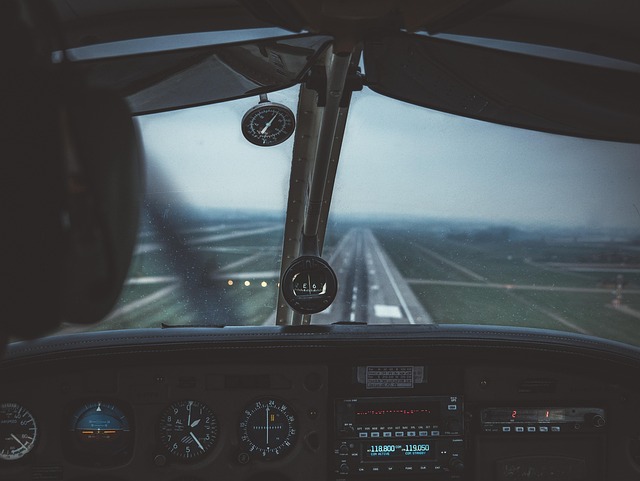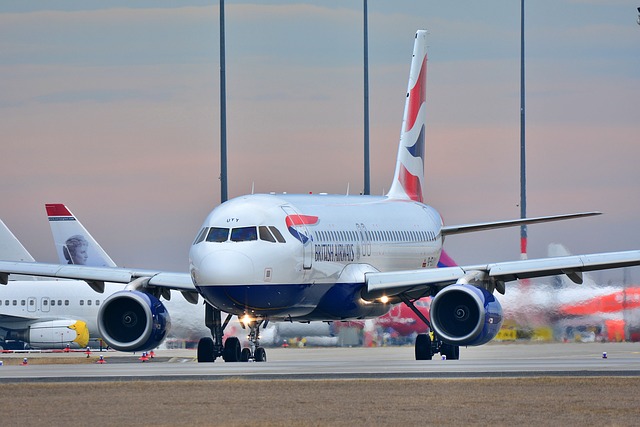Aviation Training Programs Available for English Speakers in Portugal
As interest in aviation grows in Portugal, various training programs are becoming available, catering to individuals who primarily speak English. These initiatives aim to provide insights into the roles available within the aviation industry and outline the conditions that aspiring professionals may encounter. Understanding these elements can aid in navigating the path towards a career in aviation.

Understanding Aviation Training Programs in Portugal
Portugal offers a range of aviation training programs designed to prepare students for careers as commercial pilots, private pilots, and other aviation professionals. These programs typically include ground school instruction covering subjects such as meteorology, navigation, air law, and aircraft systems, combined with practical flight training. Many Portuguese flight schools have recognized the international demand for English-language instruction and have adapted their curricula accordingly.
The European Aviation Safety Agency (EASA) sets the regulatory framework for aviation training across European Union member states, including Portugal. This means that licenses obtained through Portuguese flight schools are recognized throughout Europe and often hold reciprocal agreements with aviation authorities in other regions. Training programs generally follow EASA standards, ensuring consistency and quality across institutions.
Several flight schools in Portugal specifically cater to international students, offering courses entirely in English. These institutions employ instructors fluent in English and provide all course materials, examinations, and flight briefings in the language. The duration of training varies depending on the type of license pursued, ranging from several months for a Private Pilot License (PPL) to approximately 18-24 months for an integrated Airline Transport Pilot License (ATPL) program.
Support for English Speakers in the Aviation Sector
English speakers pursuing aviation training in Portugal benefit from several support mechanisms. Aviation English is the international language of flight operations, meaning that air traffic control communications, technical documentation, and operational procedures are conducted in English worldwide. This creates a natural advantage for native English speakers entering the field.
Flight schools catering to international students often provide additional services beyond standard instruction. These may include assistance with visa applications, accommodation arrangements, and cultural orientation to help students adjust to life in Portugal. Some institutions maintain partnerships with airlines and aviation companies, facilitating networking opportunities and potential career placements upon completion of training.
The Portuguese aviation community has become increasingly international, with many flight instructors and aviation professionals coming from diverse backgrounds. This multicultural environment creates a welcoming atmosphere for English-speaking students. Additionally, Portugal’s strategic location offers varied flying conditions, from coastal areas to mountainous terrain, providing comprehensive training experiences.
Exploring Roles and Conditions in Aviation Training
Aviation training in Portugal prepares students for various roles within the industry. The most common pathway leads to becoming a commercial airline pilot, but other opportunities exist in cargo operations, charter services, flight instruction, and corporate aviation. Each role requires specific qualifications and training modules.
Training conditions in Portugal are generally favorable due to the country’s climate, which allows for year-round flying with minimal weather-related disruptions. Flight schools operate from various airports and airfields across the country, with some located near major cities like Lisbon and Porto, while others are situated in smaller regional airports offering less congested airspace for training purposes.
The training environment emphasizes safety, professionalism, and adherence to international standards. Students undergo regular assessments and progress checks throughout their programs. Practical flight training includes solo flights, cross-country navigation exercises, and instrument flying practice. Ground school examinations must be passed before students can progress to flight tests for license issuance.
Aviation Training Costs and Program Comparison
Understanding the financial commitment involved in aviation training is essential for prospective students. While costs can vary significantly depending on the institution, program type, and individual progress, several flight schools in Portugal offer transparent pricing structures for English-speaking students.
| Program Type | Training Provider | Cost Estimation |
|---|---|---|
| Private Pilot License (PPL) | Various Portuguese flight schools | €8,000 - €12,000 |
| Commercial Pilot License (CPL) | Integrated programs at flight academies | €30,000 - €50,000 |
| Airline Transport Pilot License (ATPL) | Full integrated courses | €60,000 - €90,000 |
| Instrument Rating (IR) | Add-on to existing licenses | €10,000 - €15,000 |
| Multi-Engine Rating (MEP) | Specialized training modules | €5,000 - €8,000 |
Prices, rates, or cost estimates mentioned in this article are based on the latest available information but may change over time. Independent research is advised before making financial decisions.
These estimates typically include flight hours, ground school instruction, examination fees, and training materials. However, students should budget for additional expenses such as accommodation, living costs, medical examinations required for pilot licensing, and potential extra flight hours if additional practice is needed. Some schools offer modular training options, allowing students to complete their training in stages, which can help manage costs over time.
Licensing Requirements and Regulations
Obtaining a pilot license in Portugal requires meeting specific medical, educational, and practical requirements. Students must hold a valid Class 1 or Class 2 medical certificate issued by an EASA-approved Aviation Medical Examiner, depending on whether they are pursuing commercial or private pilot privileges. The medical examination assesses vision, hearing, cardiovascular health, and overall fitness for flight operations.
Educational prerequisites vary by program, but most flight schools require students to be at least 18 years old for commercial training and 17 for private pilot training. English language proficiency must be demonstrated, typically through achieving at least ICAO Level 4 on the aviation English language proficiency scale. This ensures students can effectively communicate in operational environments.
The training process involves both theoretical knowledge examinations and practical flight tests. EASA theoretical examinations cover multiple subjects and must be completed within a specified timeframe. Practical flight tests, known as skill tests or checkrides, are conducted by designated examiners and assess a student’s ability to safely operate an aircraft according to regulatory standards.
Career Pathways After Training
Upon completing aviation training in Portugal, graduates have various career pathways available. Many pursue positions with commercial airlines, starting as first officers and progressing to captain roles with experience. The European aviation market offers opportunities across multiple countries, and EASA licenses facilitate mobility within the region.
Other graduates choose careers in general aviation, including flight instruction, charter operations, or aerial work such as survey flying or emergency medical services. Some aviation professionals transition into related fields such as aviation management, safety inspection, or regulatory compliance. The skills and qualifications gained through comprehensive training programs provide a foundation for diverse career trajectories within the aviation industry.
Networking during training can significantly impact career opportunities. Many flight schools maintain relationships with airlines and aviation companies, sometimes offering cadet programs or preferred hiring pathways for their graduates. Building professional connections with instructors, fellow students, and industry representatives creates valuable opportunities for future employment and career development.




